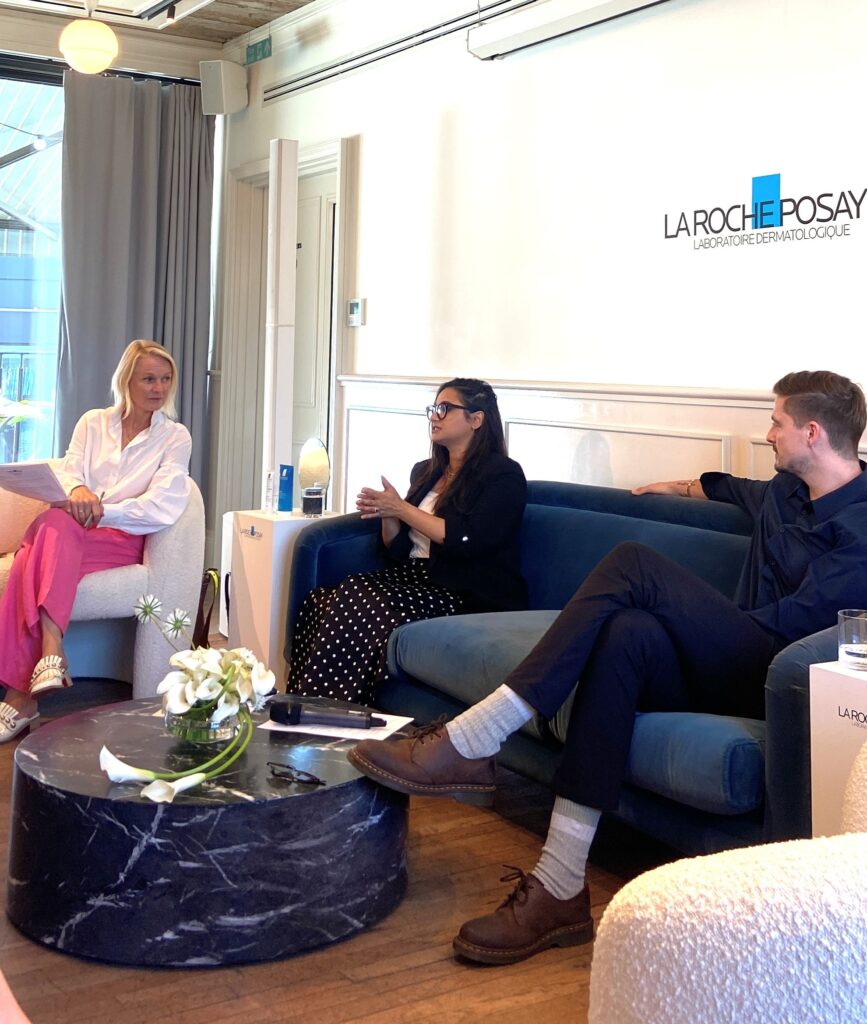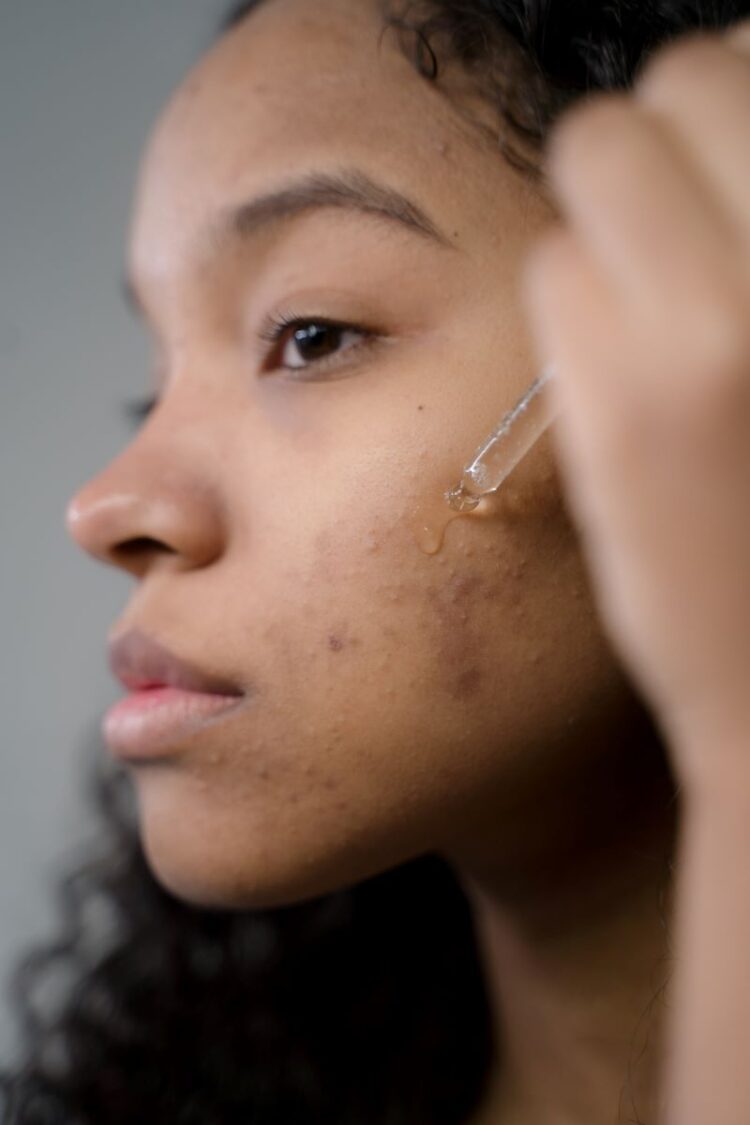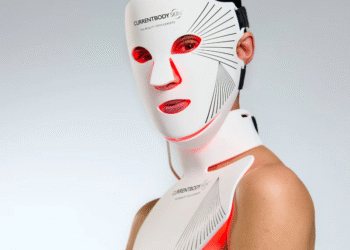Megan Fox sat down with consultant dermatologist Dr Alia Ahmed to chat about the importance of taking a holistic approach to skin conditions
At La Roche-Posay’s launch of its new Effaclar Duo + M product, Dr Alia Ahmed spoke alongside Dr Alex George on the importance of not just treating the physical side of certain skin issues, but the impact these conditions may have on the mental health of individuals.
What is psychodermatology?
Put simply, psychodermatology is the study of the relationship between the mind and the skin. Psychological and psychiatric techniques are used to treat patients by addressing how stress or anxiety could be causing or exacerbating a skin condition.
While treating the skin’s issues with the right products is important, so too is looking after your wellbeing and making sure to take time to relax and de-stress. Skin flare ups are so often caused by stress, it is vital to take into account a healthy lifestyle and diet alongside a good skincare routine.

The chicken and the egg
Dr Ahmed explains that the link between the skin and the mind can be a bit like the chicken and egg story. Which comes first? Poor skin conditions or mental health issues?
“As well as stress, there are many other elements that can lead to skin issues such as genetics and environment,” she explains. “Certain parts of the world that aren’t dealing with as many climate issues are seeing much lower rates in certain types of skin conditions. There is also a lifestyle element too. People with psoriasis, for example, are more likely to be overweight and are more likely to be heavy drinkers. But again, we need to work out what came first. Were they already overweight and then got psoriasis or did they get psoriasis and feel so bad about themselves that they didn’t want to go out anymore or exercise out of fear of people making comments, and then they became overweight?”
When I ask how one can break this vicious cycle, she said: “A lot of it depends on the story. Psoriasis is one of the conditions where actually we’re pretty much trained to ask, “When did it start and what happened just before it started?” Often, it’s kicked off by stressful events. It can be physical stress. Some people get psoriasis after a nasty throat infection. But usually it’s a bereavement or changing of a job. What often happens then, is even when that stress is removed, people might say, “I lost that job, I have a new one now and I am very happy. Why is the skin condition still here?” But, the body doesn’t forget the stress.
Dr Ahmed continues: “There are some very good treatments for psoriasis now, and when we put people on those treatments, even if the treatment hasn’t completely cleared the skin, we find very quickly that they feel a lot better. This looks at the neuro-inflammation argument. We are looking at the case that medication might be reducing the inflammation internally, so that now the person can think clearer, see clearer and feel better psychologically. It’s not just what their skin looks like, it’s also the ability to have a clearer mind.”

Learning a new lifestyle
In Dr Ahmed’s clinic in London, all of her patients get lifestyle education. They all have an overall health check once a year and she discusses with them the vast variety of elements such as stress, sleep and diet that contribute to healthy skin. She looks at the overall picture when someone comes in with a skin condition, not just the problems on the surface. Dr Ahmed mentioned that over one third of people with poor skin conditions experience mental health issues. I wondered if she felt that all dermatologists should be trained to recognize this in their patients given that the rates are so high?
“Yes, absolutely. We all need more knowledge and training in mental health anyway but yes, in dermatology for sure. If someone looks at you, they’re not going to be able to tell you that you have got high blood pressure or diabetes,” she says. “But if you have got acne, someone will tell you or you will be able to tell yourself. So this visibility of skin conditions really dictates that we should be much better at performing psychological assessments and recognising people who are in trouble. Just recognising that people are in trouble mentally is important and from there we can refer them on to a therapist or psychologist who can further assist.”
Finding patience
When the skin issue has been identified and treatment has been allocated, it can be really hard to find the patience, and hope for the results to come through. What advice would you give to someone who is doing all they can to push through this challenging time, I ask.
“Some of the things that I say to patients is, “What we want is for you to be the best version of yourself”,” she replies. “Also, to not always focus on the destination. So, when someone comes to see a dermatologist, typically when we say, “What do you want out of this consultation?” They will say “I want clear skin”. But it’s a journey, and the thing is, if you’re going to constantly focus on “I’m only 50% there, my skin isn’t clear yet”, that will be what impedes your journey and make it more difficult for you.”
“I do spend a lot of time asking patients how they feel about themselves. And this can be quite hard. I’ll ask things like, “Tell me about your relationships?” and I’ll often hear back, “Well I can’t have a relationship because of my skin” or when it comes to securing a job some patients might not go for the interview because of their skin. So then I’ll say okay, let’s talk about others things. What’s going well? What do you enjoy? Who is your social support network? When was the last time that you did something for yourself? So actually really focusing on those positive moments and constantly reminding them about these, because negative self talk is rife.”
If you are struggling in any way with your mental health please reach out to someone you trust or contact Pieta House on 1800 247 247. You can also text HELP to 51444* Find out more skin facts from Dr Alia Ahmed at her Instagram.
La Roche-Posay has an incredible free resource available that allows you to take a scan of your face and the app will immediately inform you of problem areas that you may have and what products might be best suited to you. Visit here for more information. Alternatively, you can avail of their free one-to-one online consultations that can give you some information ahead of meeting with a GP or dermatologist. Find more information at larocheposay.ie.








